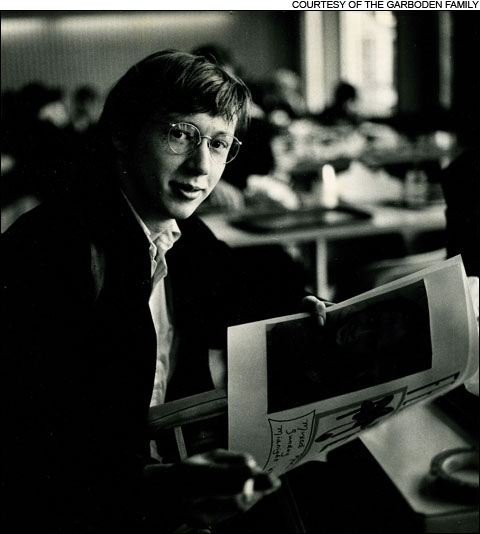
ART IN CRAFT Whether it was photography, page design, editing, or writing, to Clif Garboden, journalism was not about talking, it was about doing. And few did it better than Clif. |
READ: Clif Garboden's friends and colleagues share memories and stories about Clif (photo slideshow)
Clif Garboden, who spent virtually all of his professional career affiliated with the BostonPhoenix, died last week. He was 62.
The cause of death was pneumonia, a complication of a resurging cancer he thought he'd beaten six years ago.
When the cancer came back, Clif announced it on his blog, This Annoying World. Under the banner FUNNY CANCER HEADLINE GOES HERE, he detailed the facts — coolly, wryly, deliberately. Small growth. Base of tongue. Hope for the best.
A handful of days later, Clif was dead.
He died peacefully, surrounded by his family: his wife Susannah, his son Phil, and his daughter Molly.
Clif was by nature a sardonic. He knew that life was unfair. But he was determined to get the most out of it — on his terms. That was the flag he flew during his first joust with cancer. Truth be told, there were some grim moments. More, I'm sure, than any of us imagined.
The last day Clif was in the office before submitting to what would be the most harrowing of his treatments, I walked with him toward the door.
"I know that life sucks," Clif said. Pause. Handshake. "But don't expect me to die."
***
You don't need a blue-collar pedigree to become a good journalist, but it helps.
Clif was from Pittsburgh. I don't know if Pittsburgh has a good side of the tracks. But if it does, Clif was not from it. Like many working-class kids of his day who became journalists, Clif was the first member of his family to go to college — Boston University, where from his first day on campus he immersed himself in journalism.
The BU News was one of a handful of college and community papers that were redefining journalism in the 1960s. These papers not only questioned the assumptions that underlay the politics and morality of national life, they also forged a new kind of personal journalism rooted in narrative and committed to social justice.
Clif was in the thick of that flow and over almost 40 years dedicated considerable energy to keeping it churning through the Phoenix. He tells the story of how those days propelled journalism into new directions in a Phoenix piece that, if it isn't legendary, should be: "Off the press! My life and good times in alternative journalism."
Clif wrote: "My generation's distinguishing shared experience was media; our common characteristic was a determination to do things our own way. Inspired by Elvis and Kerouac and Ed Murrow and Dylan and betrayed by the Kennedy assassination and the Vietnam draft, we saw every advantage in re-invention and none in convention."
Clif came to the Phoenix as a photographer, a freelancer like most of the other contributors. He joked that he used to get assignments because he had a car and could not only ferry himself around, but could also act as a taxi for writers.